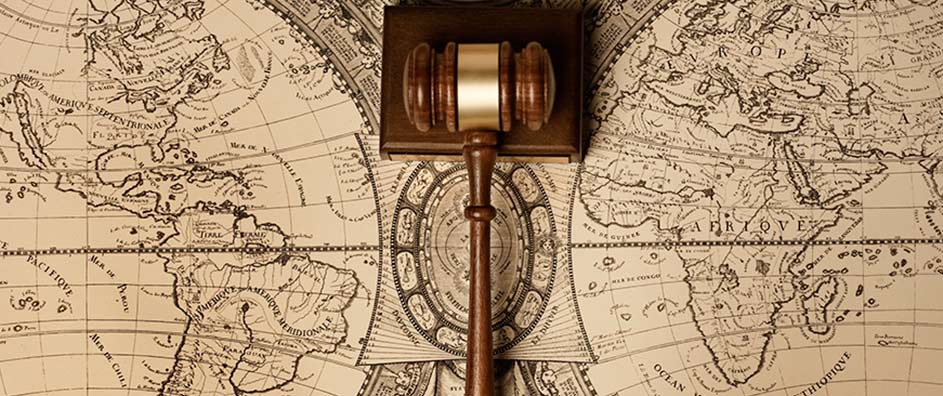The views expressed in our content reflect individual perspectives and do not represent the authoritative views of the Baha'i Faith.
Here’s an important question we all ask sooner or later: Is there justice in this world?
Our certitude and conviction may be shaken by the repeated images of blatant injustice rampant in a supposedly just creation. Our faith may falter in the maelstrom of our own personal encounters with events that often seem to deny the existence of any God, let alone a beneficent Creator. Or else we may find ourselves gradually ever more fragmented as we attempt to segregate our lives by trying to choose between the worthy goal of devoting ourselves to professional achievement and the more explicitly spiritual objectives of assisting a suffering humanity.
The end result of this internal dichotomy may well be that we come to accept a vision of ourselves as precariously tottering between two worlds, the end result being that we approach all things physical with a persistent and haunting sense of guilt or anxiety.
In the Baha’i texts there is no such puritanical approach to physical experience: we are encouraged to enjoy the material bounties of this life so long as these interests do not deter us from our ultimate objective of spiritual development:
Should a man wish to adorn himself with the ornaments of the earth, to wear its apparels, or partake of the benefits it can bestow, no harm can befall him, if he alloweth nothing whatever to intervene between him and God … – Baha’u’llah, Gleanings from the Writings of Baha’u’llah, p. 276.
The problem with this advice is trying to determine at what point material involvement begins to “intervene” between ourselves and our efforts to be spiritual beings? How do we live simultaneously in two disparate realities? Furthermore, this dilemma is compounded by our daily experience—we sense within us two natures, one spiritual, rational, and transcendent, the other appetitive, acquisitive, and mundane. What is worse, more often than not the fulfillment of one aspect of our nature seems to deny or frustrate the fulfillment of the other.
Certainly the solution to the conflict we encounter as spiritual beings associating with a physical environment is beyond our complete comprehension. Nevertheless, this fundamental fragmentation of our daily existence cannot long remain unresolved without eroding to some degree our personal conviction and our effort to live an integrated life. Indeed, were we to discover even a portion of the answer to this paradox, we could be greatly strengthened in our resolve to take full advantage of the unique opportunities afforded by the brief physical experience that constitutes earthly life. For if God is a wise and loving educator and could have created whatever environment for us that He wished, there must have been a very special reason He chose to have us begin an eternal spiritual journey in an environment so bewildering to our lofty purposes, especially our desire to maintain belief in a just and loving God.
The quest for such an answer or answers must begin by dividing this overwhelmingly huge question into manageable parts.
First, we can benefit from examining some of the classic attempts to respond to the question of “theodicy”—attempting to discover divine justice in the midst of an ostensibly unjust creation.
Second, we can examine the persistence of this problem even in the environment of the “post-modern” era of intellectual relativism.
Third, we can compare the classical and contemporary responses to the perspective offered in the authoritative Baha’i texts since, according to Baha’i belief, these teachings are designed to respond to all philosophical and theological questions relevant to the contemporary human condition.
After establishing these three fundamental problems that relate to the question of physical reality, we can then delineate a more exacting and encompassing vision of the Baha’i model of physical creation as a sane and just environment for our instruction.
In particular, we can explore the essentially metaphorical nature of physical reality and our dramatic participation in it—and we can discover whether human justice differs from God’s justice.
The conclusion of our study will be the most exciting and the most important part of all—after we attempt to figure out how physical life can teach us spiritual lessons, we will examine the relationship between how we perform here in the physical realm and what we will experience in the life hereafter, once our soul dissociates from the physical or metaphorical self that is our body.
















Comments
Sign in or create an account
Continue with Googleor